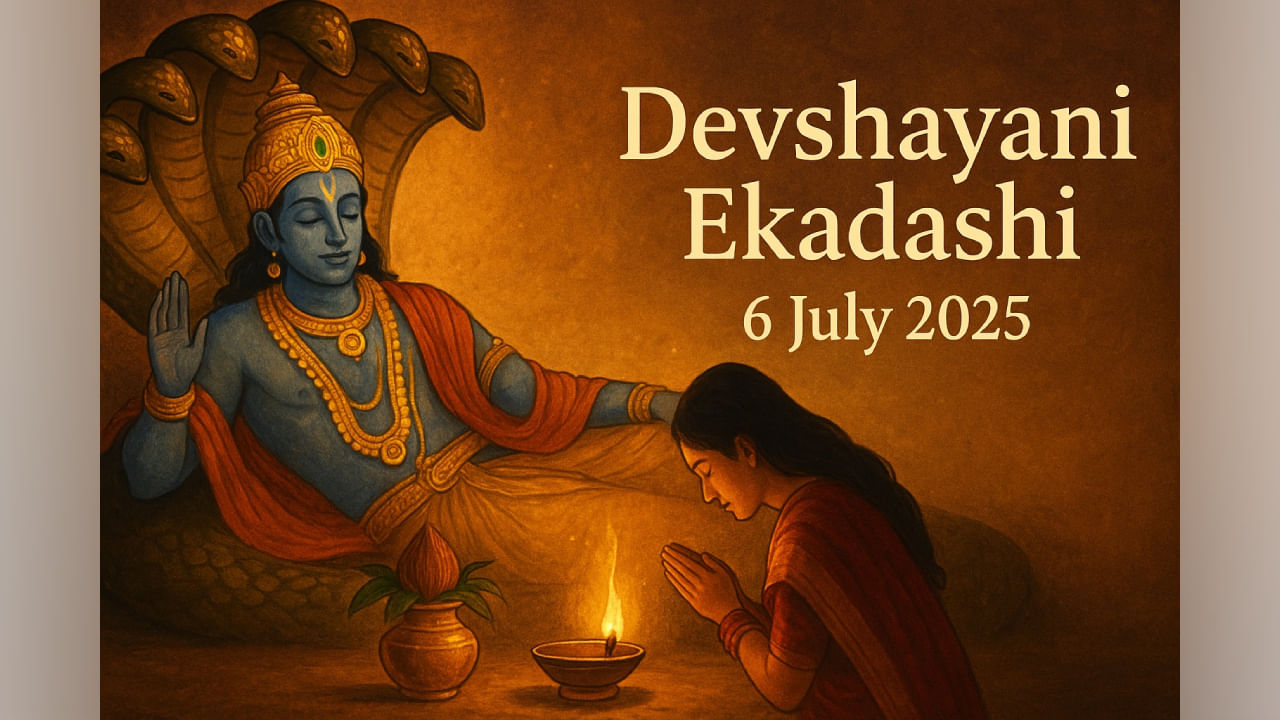Mumbai: As the holy month of Ashadha approaches, many Hindus are preparing for one of the most spiritually significant observances of the year — Devshayani Ekadashi, also known as Ashadhi Ekadashi. Falling during the Shukla Paksha (bright fortnight) of Ashadha, this sacred Ekadashi marks the beginning of Chaturmas, a four-month period when Lord Vishnu is believed to enter a deep cosmic sleep. The spiritual community observes a fast and performs rituals to honour the deity on this day.
In 2025, there has been some confusion regarding the exact date of Devshayani Ekadashi — whether it will be observed on 6 or 7 July. According to the Hindu Panchang, the Ekadashi tithi begins at 6:58 PM on 5 July 2025 and ends at 9:14 PM on 6 July 2025. Since the tithi overlaps with sunrise on 6 July, the fast and rituals will be observed on Sunday, 6 July 2025.
What Is Devshayani Ekadashi?
Devshayani Ekadashi marks the day Lord Vishnu is believed to rest on the cosmic serpent Sheshnag in the Kshira Sagar (Ocean of Milk). This symbolic retreat into yogic slumber continues until Devuthani Ekadashi (also known as Prabodhini Ekadashi) in the month of Kartik, when the Lord is said to awaken. During these four months — collectively known as Chaturmas — auspicious events such as weddings and new business ventures are generally avoided. Instead, the focus shifts toward devotion, self-discipline, and inner growth.
Key Devshayani Ekadashi 2025 Dates & Timings
- Ekadashi tithi begins: 5 July 2025 at 6:58 PM
- Ekadashi tithi ends: 6 July 2025 at 9:14 PM
- Fasting and main observance: 6 July 2025 (Sunday)
Spiritual Significance and Rituals
On Devshayani Ekadashi, devotees worship both Lord Vishnu and Lord Shiva. The day is considered highly auspicious for chanting powerful mantras such as the Mahamrityunjaya Mantra, offering food to Brahmins, and reciting sacred stories related to the Ekadashi. It is believed that those who observe this fast with sincerity are freed from past sins and may attain moksha (liberation). The observance also symbolises surrendering one’s ego and letting divine consciousness guide one’s life during this inward-focused period.
(Disclaimer: The information provided is based on traditional beliefs and religious texts. News9 Live does not endorse or validate these claims.)
